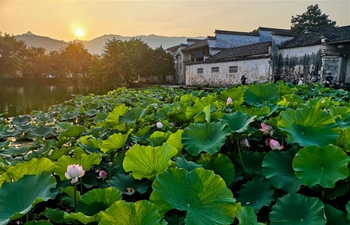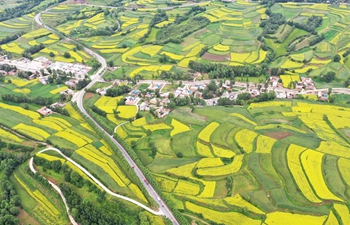NAIROBI, June 29 (Xinhua) -- Against the backdrop of rising protectionism and unilateralism, growing trade agreements between African and Chinese companies have testified to the deepening economic relations between the two sides, African officials and experts have said.
A total of 93 deals between South Africa and China were signed last week in Cape Town, and those deals would not only create jobs for the youth, but also help to boost South Africa's gross domestic product growth, said South African Trade and Industry Minister Ebrahim Patel.
"One of the noteworthy agreements was an additional plant injection into a Chinese auto assembly plant in Coega, Eastern Cape," said Patel.
Beijing Automotive Industry Corporation is in the process of constructing the first new light-vehicle manufacturing plant in more than 45 years in Coega, he said.
Since the establishment of diplomatic ties over two decades ago, the two countries have made great efforts to build strong economic ties.
"Our engagements through platforms of this nature reflect our common determination to take our economic relations to greater heights," said the minister.
Two-way trade between South Africa and China increased to 40.6 billion U.S. dollars in 2018 from 9.4 billion dollars in 2009, he said.
The signing of these deals in Cape Town indicated China's willingness to invest in manufacturing in other countries.
On the sidelines of the G20 summit, Chinese President Xi Jinping on Friday put forward a three-point proposal at a China-Africa leaders' meeting in Osaka, Japan, on building a closer community with a shared future between China and African countries. The three-point proposal touched upon win-win development, opening-up and multilateralism.
Charles Ruhara, a lecturer at the University of Rwanda's College of Business and Economics, said that the three-point proposal means good opportunities for the African continent as it supports a win-win scenario.
Unlike the West, China offers productive partnership with Africa unconditionally, said Ruhara.
"China is now in a position where it can shift advanced production to different parts of the world," said Patel. "It has reached a level where it can make a meaningful contribution to invest in manufacturing in South Africa and increase imports of value added products."
Patel said the implementation of eight major initiatives announced at the 2018 Beijing Summit of the Forum on the China-Africa Cooperation (FOCAC) to boost cooperation with Africa will make a positive contribution to the growth of the African continent, particularly in the areas of industrialization, infrastructure, trade and investment facilitation as well as financial services and capacity building.
After meeting with Xi on Friday, South African President Cyril Ramaphosa said the country will continue to work with China to chart the future of FOCAC and contribute to the UN Sustainable Development Goals and the AU's Agenda 2063, according to the South African government official Twitter account.
Despite the progress made between China and African countries, including South Africa and Rwanda, there is still room for improvement and China-Africa forums should touch upon topics such as how to move forward the win-win situation, Ruhara said.
"China has what Africa needs and Africa has what China needs ... Africa has development potential which can benefit from China's development in terms of capital investment, management know-how and development aid," added Ruhara.
China has been Africa's biggest trading partner for 10 consecutive years. In 2018, trade volume between China and Africa amounted to 204.2 billion dollars, up by 20 percent year on year.











